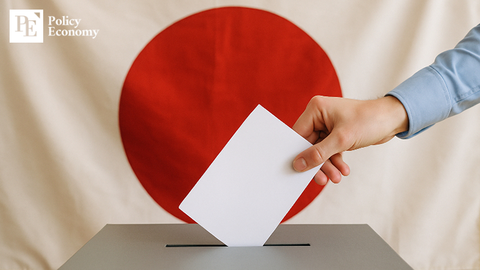From Home Invasion to Illegal Filming: Criminals Profiting off Celebrity Privacy
Input
Modified
“The chronic problem of ‘sasaeng fans’ persists, causing turmoil in the industry.” “Fake fans disguised as ‘sasaengs’ are also emerging.” “Creating content for financial gain.”

As K-pop’s influence grows beyond Asia to captivate fans across the globe, so too does the darker side of fame—one dominated not by love or admiration, but by obsession, intrusion, and exploitation. What once started as extreme but mostly harmless fan behavior has morphed into a systemic problem: sasaeng fans, known for crossing boundaries, are now engaged in coordinated and profit-driven criminal activity. These individuals purchase illegally obtained personal information, break into celebrities’ homes, track their schedules, and photograph them without consent. They then sell this stolen intimacy back into the fandom ecosystem—creating a vicious cycle where the personal lives of idols are repeatedly violated, monetized, and consumed. What might have once been dismissed as overzealous fandom is now being recognized as a form of stalking and digital trafficking that demands legal and social accountability.
Targeting Idols at Home and Abroad
The most recent and high-profile example of sasaeng criminality occurred on June 12, when Seoul's Yongsan Police arrested a Chinese woman in her 30s who attempted to break into the home of BTS’s Jungkook. Reports indicate that she flew to Korea specifically to see him. Surveillance footage revealed her repeatedly inputting various combinations into the digital lock at his front door before she was caught and arrested on the spot for attempted trespassing. Jungkook had only recently been discharged from military service, but his experience with stalker fans is long and well documented. Prior to his enlistment and even during his military duty, he endured repeated invasions—food deliveries sent by strangers to his private residence, and uninvited fans staking out his gym. In a live broadcast during a break last December, Jungkook issued a heartfelt plea to viewers: “Please don’t come to my house.”
Yet, Jungkook’s ordeal is far from unique. In December of the same year, a young man in his 20s was sentenced to 10 months in prison for twice breaking into the former residence of the girl group NewJeans. Though the members had already moved out, the perpetrator broke in and stole personal belongings including hangers and fan-made banners. The case revealed that even after a celebrity has moved away, obsessive individuals may continue to track their past residences and patterns. This sustained fixation reflects how sasaengs operate with alarming commitment.
Veteran singer Kim Jaejoong’s experience also paints a grim picture. Over the years, he has become a repeated target of sasaengs, and his latest ordeal highlights how these invasions are no longer confined to physical spaces. Kim recently revealed that someone hacked his KakaoPay account—an incident he described as mentally crushing. “My password was changed, and when I contacted support, they told me I couldn’t delete the account unless I knew the new password. That totally broke me.” But financial violation was just one layer of the trauma. Kim shared a chilling account: someone had secretly entered his home late at night, in a residence that didn’t have a digital lock, and photographed him from behind in intimate settings like his bedroom and bathroom. The images were later sent to him via photo mail. To avoid vehicle-based tracking, he said he had to switch cars seven to eight times. “They memorized my license plate,” he said. “One person even deliberately crashed into my car.”
These are not isolated incidents—they are indicative of a broader, persistent threat to celebrities’ physical safety, mental health, and personal dignity.

Behind the Lens: The Business of Proxy Photography
While many sasaeng activities might appear driven by irrational obsession, the truth is more disturbing: some are carried out with financial gain as the primary motive. Increasingly, sasaengs are becoming organized players in an underground market where the privacy of idols is up for sale. A particularly lucrative niche has emerged: the role of 대리찍사—or proxy photographer.
These sasaengs often spend large sums of money to follow celebrities abroad, particularly to locations like Japan, where short flights make shadowing idols logistically easier. A round trip for a short international event often includes at least one or two nights of lodging. If the event includes a concert or fan meet, the costs skyrocket. According to estimates, a single trip can cost approximately USD 750. These expenses are often recouped through the resale of unauthorized photos and videos taken during these schedules.
When well-known hommas—fans who manage popular fan accounts and produce high-quality media—are unable to attend a schedule in person, they hire proxies to capture the content for them. The raw files are then edited and uploaded as if the homma had taken them. In some cases, the media is used to create physical merchandise like photo books and fan goods, which are sold for profit. While the paparazzi industry is global, the K-pop version is uniquely fueled by a blend of emotional attachment and commercial opportunism.
On social media platforms like X (formerly Twitter), hashtags such as #데이터 (#data), #사후데이터 (#postdata), #대리찍사 (#proxyshooter), and #댈찍 (#shortform) yield dozens of vendors openly offering illicit media. Transactions are arranged via open KakaoTalk chat rooms, with payments accepted through KakaoPay, PayPal, and other digital channels. Some hommas even monetize exclusive stories from fan sign events—selling conversations that allegedly took place during 1:1 moments with idols. These stories appeal to general fans who are curious about what their favorite idols say to more recognizable fans, but the veracity of the content is rarely verified. Still, demand is high.
The market price of this "data" varies drastically depending on the idol group’s popularity, comeback activity, or even trending status. Though community etiquette suggests that original data should be deleted after being sold, in practice, the same files are often sold to multiple buyers. Because there's no enforcement mechanism in this black market, ethical standards are routinely ignored.
A Criminal Culture Disguised as Fandom
What makes the sasaeng phenomenon especially insidious is how it often masquerades as passionate fandom. In recent years, the rise of paid message services and private communication platforms has further blurred the lines between digital intimacy and fantasy. Some fans begin to believe they have a personal relationship with the celebrity, leading to delusional and increasingly aggressive behavior. Alarmingly, fake fans have begun to operate under the sasaeng label—chasing after idols, boasting about proximity, and even treating celebrities as if they were possessions.
Cultural critic Kim Heon-sik minced no words: "Sasaengs are not fans—they are fake fans and criminals." He warned that these individuals commit multiple forms of infringement: violating privacy, portrait rights, copyrights, and even generating deepfakes. Some resell illegally obtained content or use it to generate revenue via platforms like YouTube. “This is no longer a fringe issue,” Kim emphasized. “It affects celebrities’ mental health, sometimes to the point that it disrupts or ends their careers.” He added that the danger has now extended to influencers and ordinary individuals who live semi-public lives online. “Strong legal punishments and social sanctions are urgently needed.”
Despite increasing calls for reform, Korea’s current legal and institutional frameworks are not equipped to handle the complexities of sasaeng activity. One entertainment industry insider explained that while major agencies can pursue legal action, smaller companies and rookie idols lack the resources and often fear retaliation. “Many choose to remain silent, either because they can’t afford a legal battle or they’re afraid of what sasaengs might do next.”
This has led to growing calls for sasaeng behavior to be treated not as an internal industry issue, but as a public one, requiring institutional and societal attention. Kim argued that civic groups and public agencies must become involved. “But many still say, ‘Why should we protect celebrities?’” he lamented. “The public often thinks only of global stars, but many others—people with no real income, just brief fame—end up enduring this abuse for years. Some are targeted by sasaengs simply for appearing in a single drama or music show. Who will speak up for them?”




















